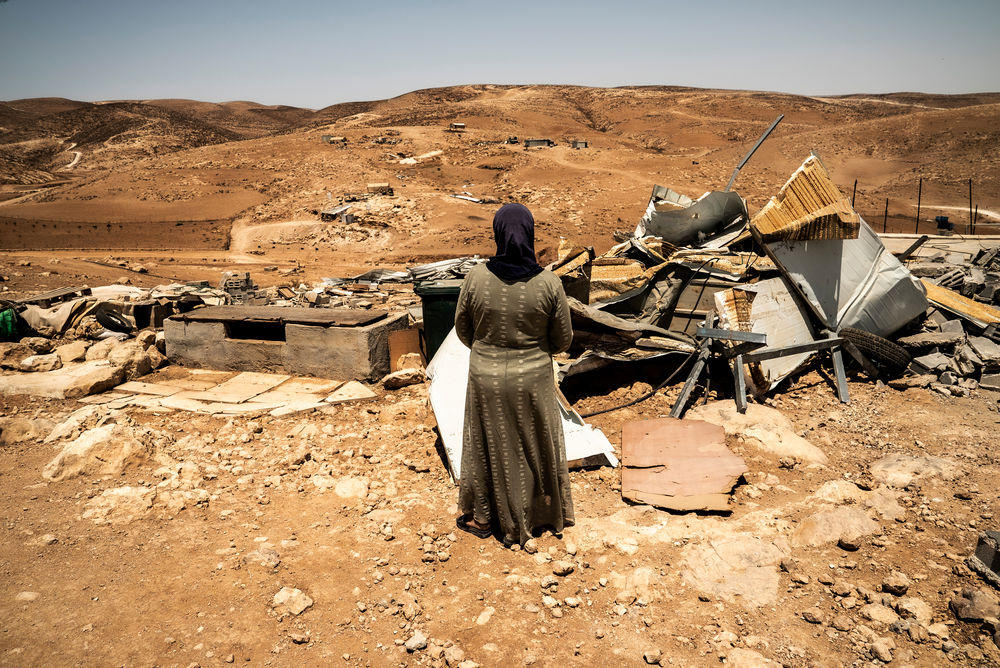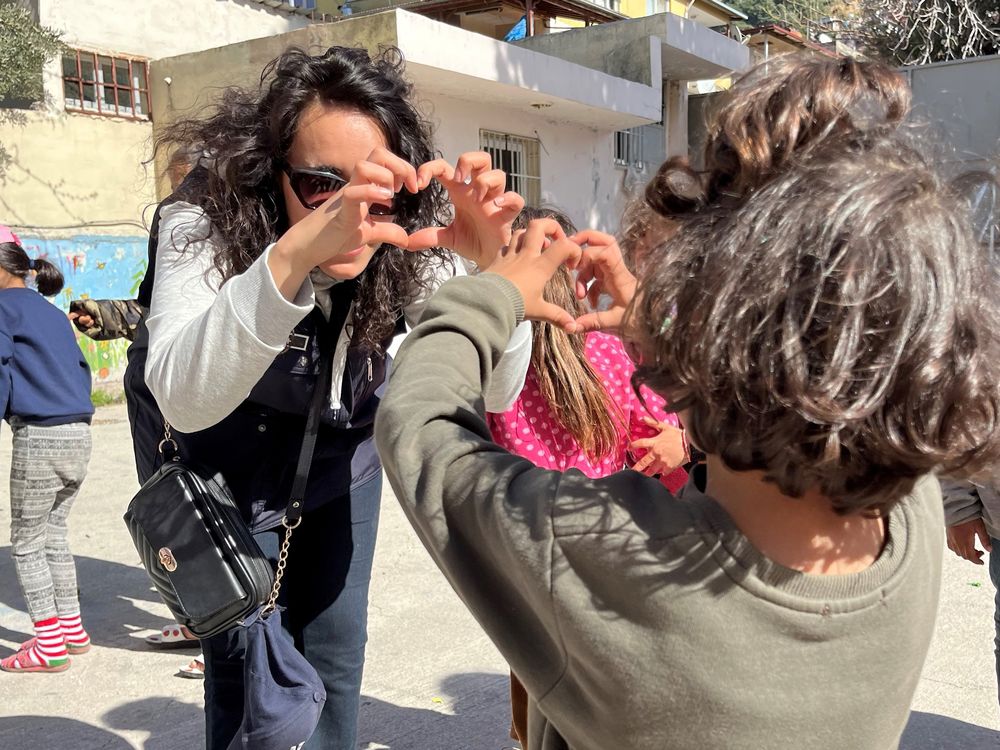Living in constant fear of eviction, seeing their homes demolished and having their movements restricted are some of the challenges faced by Palestinians in and around Masafer Yatta, in the southern West Bank of the Occupied Palestinian Territories. In its new report The unbearable life: the health impacts of the Israeli measures to forcibly evict the residents of Masafer Yatta, Médecins Sans Frontières/Doctors Without Borders (MSF) sheds light on the extraordinary pressure applied by Israeli authorities to push local communities to leave the area and the impact of this on people’s physical and mental health.
“If I lose my land, I lose my life,” said one resident of Al-Majaz village in Masafer Yatta, summarising how much is at stake for the affected communities.
As well as the threat of eviction from their homes, residents live under constant threat of violence. “Soldiers enter villages at night, enforce curfews and other movement restrictions, conduct military training near living areas, confiscate vehicles and demolish homes,” says David Cantero Pérez, MSF head of mission in the Occupied Palestinian Territories. “They make life unbearable for residents.”
The measures by Israeli authorities have intensified since May 2022, following a ruling by the Israeli Supreme Court that removed all legal barriers to the forced displacement of Palestinians from Masafer Yatta to make way for a military zone. This has had a severe impact on residents’ ability to access basic services, including medical care.
MSF’s report reveals that patients are routinely denied access to villages where MSF provides medical services if their identity card shows they are from a different village. In other instances, ambulances trying to reach Masafer Yatta are delayed or even blocked and residents trying to reach hospitals are stopped at the checkpoints and face long delays. As a result, many residents report that the uncertain access to medical care in Masafer Yatta has forced medically vulnerable people – including pregnant women in their final trimester, elderly people with chronic health conditions and people with serious illnesses – to leave their homes and families for nearby Yatta city.
Coercive measures mean that residents live in constant fear for their safety and parents feel helpless to protect their children. One parent reported that their child had been woken in the night by an armed soldier and dog entering their bedroom. Other parents described their feelings of despair and powerlessness when their children returned from school to find the family home had been demolished.
Living under such challenging conditions is taking a huge toll on people’s mental health, says MSF, whose mobile teams have provided medical care, including mental healthcare, to residents of Masafer Yatta since 2021. MSF’s report highlights a sharp increase in demand for mental health support among residents who experienced home incursions and demolitions. Following these incidents, more than half of MSF patients in 2022 reported psychosomatic symptoms; one-quarter of patients showed post-traumatic symptoms; and two-thirds described having depressive symptoms.
“Over the past year, we have witnessed at first hand the impact of the increasingly coercive environment on the physical and mental health of the people in Masafer Yatta,” says Cantero Pérez. “As a medical humanitarian organisation, we denounce the Israeli policies and call on Israeli authorities to bring an immediate halt to the eviction plan and to stop implementing measures that restrict access to basic services, including medical care, for Palestinians in Masafer Yatta. This unnecessary suffering must stop.”
Finally, MSF calls on the international community to take urgent and necessary measures to protect the population of Masafer Yatta and to ensure that their human rights are upheld.
MSF has provided medical and mental health services to the residents of Masafer Yatta via mobile clinics since 2021, and mental healthcare in Hebron governorate, which includes Masafer Yatta, since 1996. In this time, MSF teams have witnessed the impact of Israel’s coercive measures on every aspect of residents’ daily lives.
FAST FACTS:
• 1981: The year Israel first designated Masafer Yatta an army firing zone
• 1,144: The number of Palestinians living in 12 communities in Masafer Yatta, including 569 children
• May 2022: A ruling issued by the Israeli Supreme Court removed all legal barriers to the forced displacement of Palestinians from Masafer Yatta to make way for a military zone.
• From May to October 2021, 20.7% of MSF’s mental health patients experienced home incursions and 3.8% had their property demolished. These numbers increased to 39.8% and 21.8% respectively over the same time period in 2022. Following the rise in incidents, more than half of these patients reported psychosomatic symptoms; one quarter showed post-traumatic symptoms; and two-thirds described having depressive symptoms.
• When comparing May to October 2022 to the same period in 2021, MSF observed a 27% reduction in the total number of consultations for chronic diseases per mobile clinic. Follow-up interviews showed that a majority of patients stopped coming to their regular follow-up consultations because of access-related issues, such as having their car confiscated by the Israeli army and the need to spend more time in the nearby town of Yatta to be closer to medical facilities.
• In Masafer Yatta, water pipes are regularly cut off, water tanks are destroyed and trucks delivering water tanks are stopped and confiscated. The challenges of getting hold of sufficient water are further compounded by a lack of rain. The water shortage creates concerns for residents’ physical health.



